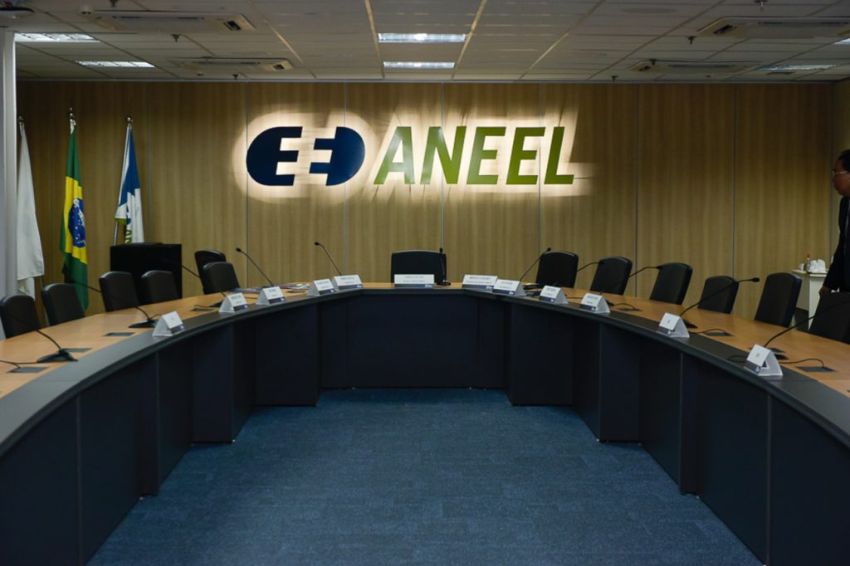The restructuring of the Brazilian electricity sector, which began in 1996, gave priority to the creation and organization of regulatory bodies for public services, endowed with autonomy, in order to implement the national energy policy and establish the conditions for expansion of services, observing the criteria of universalization, quality, fair and viable prices for users and suppliers.
The creation of regulatory agencies brought a new role and function in regulating public services with the aim of being a channel for citizens to express themselves.
All of this is based on a clear definition of user rights, publicity of decisions, appeal to decisions, political and institutional insertion, own revenue, legal autonomy, fixed term of office for the board, non-coincident terms of office for directors, restrictions on the qualifications of directors, collegial decisions, permanent staff of technicians, progression based on merit, differentiated dismissal patterns, in addition to their autonomy.
The creation of ANEEL (National Electric Energy Agency), for example, which began operating at the end of 1997, began the regulatory process and inspection of electricity distribution concessionaires across the country.
Subsequently, its control activities were decentralized to state agencies with the intention of implementing the inspection practices defined by ANEEL and the guidelines of the MME (Ministry of Mines and Energy).
In this aspect, ANEEL's main objective is to regulate and supervise the production, transmission, distribution and commercialization of electrical energy.
Furthermore, it aims to be a mediator between sector agents and consumers, allowing and authorizing electrical energy installations and services and issuing resolutions that complement current legislation, making this modernization of the Brazilian electrical sector a national and international reference in the role of regulatory agencies.
An essential instrument for exercising the control role of regulatory agencies is the autonomy of the regulatory body through its regulatory activity, in a clear and transparent manner so that the preservation of the balance of its autonomy does not violate constitutional precepts or legal rules. .
Some examples of agency control are: number of shares issued, number of fines issued, control over state financing, control over company mergers, power to disqualify any director, guarantee (of reasonable demand, tariffs, quality, financial health of the concessionaire) and requirement of competitiveness in purchases made by concessionaires.
According to a survey with agencies, the control characteristics found are:
- a) Regarding the number of electricity distribution concessionaires that are controlled by the Agency;
- b) Number of complaints;
- c) Control of financing of concessionaires of State or Union funds;
- d) Technical and commercial control at dealerships;
- e) Types of control system depending on the degree of decentralization: as decentralization becomes greater, more formalized control will be necessary. Therefore, before designing the control system, it will be necessary to define the decision-making power that is transferred to the person responsible.
In terms of quality of services, according to Capelletto and Gastaldo (2000) in the international experience of the electrical energy industry, the following classification is widely accepted to measure the quality of energy distribution services: continuity of services, commercial quality, voltage wave quality and universalization.
Below, these indicators are briefly described.
- a) Continuity of services: this concept is linked to the duration and frequency of interruptions in the supply of electricity. The most traditional indicators contained in concession contracts, of a collective nature, are the DEC (equivalent duration of electricity interruption per consumer) and the FEC (equivalent frequency of electricity interruption per consumer);
- b) Commercial quality: concept linked to the obligation to guarantee the protection of consumers in their relations with electricity concession companies, including some aspects of a technical nature of service. Some of the commercial indicators currently included in concession contracts, of a collective nature, are: TRC (number of consumer complaints per group of 100 thousand consumers) and PRTR (percentage of voltage drop complaints);
- c) Quality of the voltage wave: concept linked to disturbances in the voltage wave, involving voltage levels in the network, “voltage hollows” (sags), distortions caused by harmonics (sine voltage whose frequency is a multiple of the frequency 60 hertz), microcuts, flickers (effect associated with the impression of instability of visual sensation caused by rapid variations in voltage that are repeated with a certain frequency), etc.;
- d) Universalization of services: the concession contracts include indicators for the universalization of electrical energy services in the urban area and the universalization of services in the rural area. However, the only variable that can be studied now is the number of households (IBGE data) divided by the number of consumers supplied by the concessionaires.
Thus, ANEEL, when editing the Resolution that will complement the Distributed Generation Law in Brazil (Law 14,300/2022) will fulfill its mission of “editing resolutions that complement current legislation” through a Technical Regulation that will complete some gaps in the Law.
ANEEL, through the public consultation (Public Consultation No. 50/2022) to listen to society about the impacts and benefits of DG in Brazil and the electrical system, acted coherently as the regulatory and supervisory body that it is.
This month, ANEEL completes 25 years of existence and brings together a vast qualification in the control, inspection and mediation of agents in the electricity sector.
Today, the characteristic of regulatory agencies, especially ANEEL, brings about the achievement of these objectives so that they ensure quality in the provision of continuity of public services, and reinforces their characteristic of autonomy and their decentralized control activity.
Therefore, the purposes of regulatory agencies are not just about managing public services, but about achieving pre-determined goals and achieving quantifiable results, in the greater interest of society, which is why material, human and financial resources are allocated to public organizations that hold of legal and constitutional powers and responsibilities. Congratulations to all the Regulatory Agencies in Brazil!

















